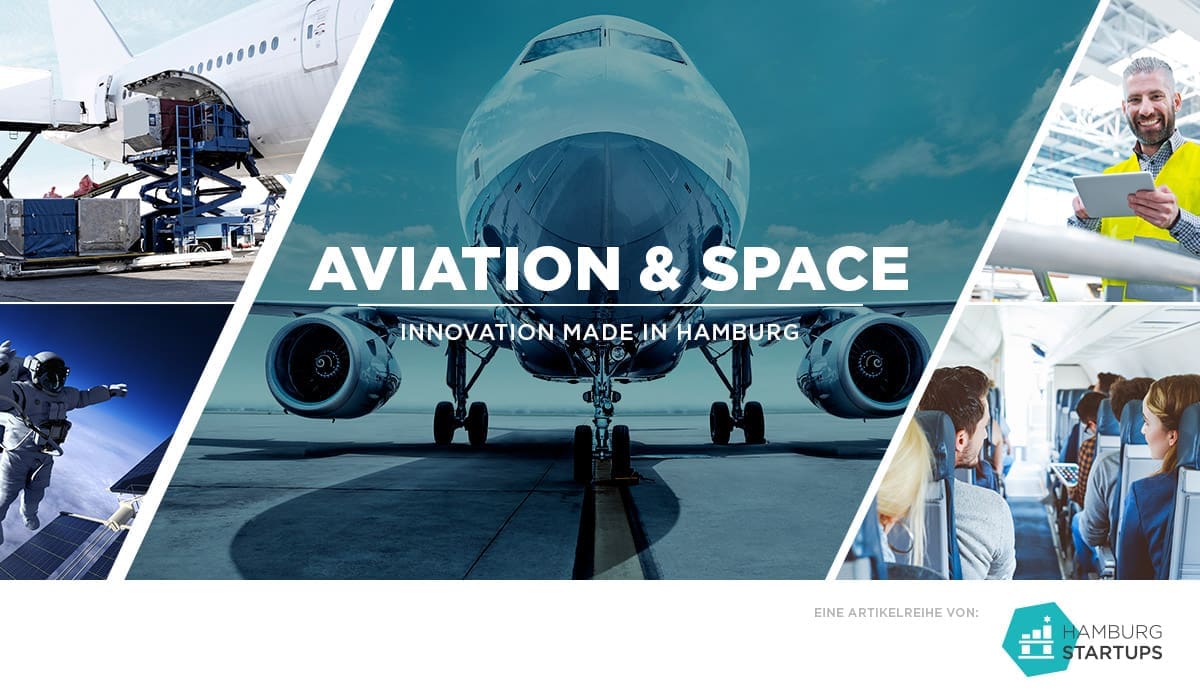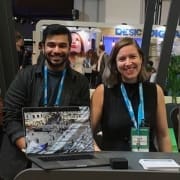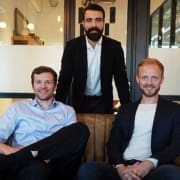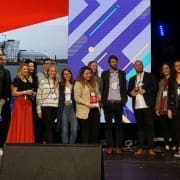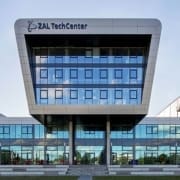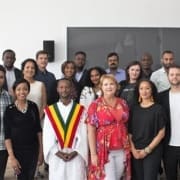At Airbus, diversity and inclusion are at the heart of the business
SPONSORED POST – International Women´s Day highlights the need to foster gender equality across the world. Airbus embraces this value and moves a step further by promoting diversity in technology as a critical factor for success. Humanising Autonomy, a startup that is taking part in Season #4 of the Airbus BizLab, demonstrates how leveraging diversity in a technological world is fundamental to address broad societal challenge.
From gender equality to diversity
The first organised and recognized action by working women goes back to the 8th of March 1857 in New York, where a large group of garment and textile factories staged a strike in protest of inhumane working conditions, inadequate pay, and long working hours. Since then, movements for the promotion of gender equality have spread across the globe, but we are still on the way towards a gender equal society. Airbus joined supporting the cause, among others, and has committed to the UN Sustainable Development Goal number 9 which expresses the need to end all forms of discrimination against women and girls everywhere by 2030.
Gender equality extends beyond levelling the social discrepancies between men and women. It means eradicating prejudices attached to gender diversity and bringing together people from many social and cultural backgrounds. Airbus, with more than 130 nationalities represented, and more than 20 languages, is leading the path towards a more diverse and inclusive working environment. For Airbus, diversity and inclusiveness at work means promoting a friendly environment, encouraging collaboration, and gaining inspiration and experience without discrimination. This social openness is also expressed in Airbus´ approach to innovation.
Innovating together is better

Jennifer Sayer, Strategic Partnerships and Urban Data , Humanising Autonomy
At the Airbus BizLab, startups from all over the world collaborate to shape the future of the aerospace. In this context, each startup is valued for its distinctive characteristics and unique team composition. A great example of these attributes is London-based startup Humanising Autonomy. Among the 10 team members, no one shares a nationality, and the balance between men and women in the company is very close to parity. This constellation is not the result of a conscious policy, but it has proven to be extremely beneficial. Indeed, a blend of different genders, nationalities and disciplines is the secret of their success. Expertise with diverse cultural and technical backgrounds such as behavioural science, image processing, deep learning, robotics and business administration work together to develop the global standard of how autonomous systems will interact with people. The company has built a human intent recognition and prediction platform that understands the full range of pedestrian behaviour and predicts intent using only visual camera footage.
A chat with Maya Pindeus
One of the main applications of the technology developed by Humanising Autonomy is pedestrian intention recognition to improve the safety and reliability of autonomous vehicles. People react differently in road situations–origin and gender, for example, can be important determining factors. Can there even be a global standard for the interaction between autonomous systems and people? Maya Pindeus, the co-founder of Humanising Autonomy, believes that the first step towards a standard of this kind is the recognition of the enormous diversity in the world where we live:
As a company, for us diversity is natural. We won’t be able to develop technology that addresses broad societal challenges if the design process is limited to a close group of people. Our team needs to be diverse because our world is diverse.
Diversity is natural at Humanising Autonomy, it seems that without it it would be impossible to develop successful and inclusive technology. Representatives of diverse cultures and genders are part of your team, how does this help to work with Airbus?
When working with Airbus we interface with a global company that is diverse by nature. For us it was easy to understand this culture because we reflect ourselves in the same values. This facilitated our way of working with Airbus and proved to be successful.

Raunaq Bose (CTO) and Maya Pindeus (CEO) of Humanising Autonomy
Sharing a common baseline in terms of values is an essential element in conducting successful business. Through the Airbus BizLab Acceleration Programme you found a use case inside Airbus for your technology at the Hamburg production site where Autonomous Ground Vehicles (AGVs) and blue-collar work on site. What are the distinctive characteristics of this environment?
For us, the fundamental question in this environment is, how do Airbus employees want to work with AGVs? What are the unwritten practices we should take into consideration when deploying our technology? This is environment and culture-specific work that is done by our behavioural data scientist tightly together with our engineering team. Once we have understood what is the way in which employees want to interact with the autonomous vehicles we deploy our solution.
Being a diverse team helps Humanising Autonomy understanding what the unique environment is in which their partners operate. How doe your approach mesh with the specific needs at Airbus?
When we started developing this software, we had autonomous cars in highly pedestrian dense environments on our minds, and this is the kind of data we trained our models on. So we were very excited to see that our software coped really well also in this new environment. The data that we collect during this Proof of Concept is essential to identify people related situations in which the AGV struggles with, and teach our models to recognise them.
A diverse team helped Humanising Autonomy to build a technology which aims at improving the interaction between humans and machines. The investor sector is also looking with particular interest to teams of this kind. Increasingly, VCs and private investor firms are facilitating the access to capitals to teams which have a diversity and inclusion policy in place. This is because it is now undisputed that diverse teams with different approaches and life experiences have a higher chance of success. They can cope better with challenges and unexpected changes thanks to their flexibility and inventiveness which are part of their natural way of being.
For Humanising Autonomy diversity is natural, it enriches our world, and helps us face big societal challenges. In this context, decades of social flights for a gender equal society have proved to be successful both in terms of social justice and technological development. The Airbus BizLab promotes this cultural shift and together with its startups wants to continue moving in the direction of a more diverse and inclusive world.
